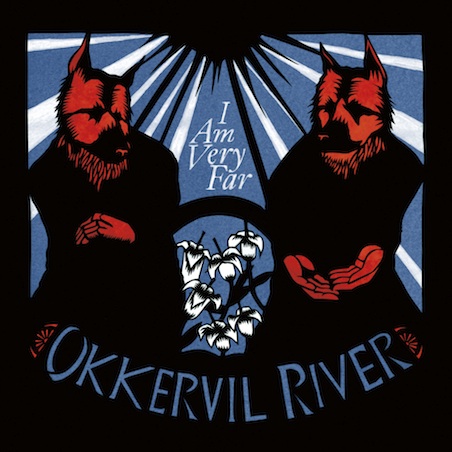Will Sheff, Okkervil River’s singer, songwriter, and now, producer, has always found strength in intimacy. Though he writes through personas, Sheff often uses the first person to make stories of abuse (“Black”), longing (“So Come Back, I’m Waiting”), or even, unlikely as it sounds, presidential assassination (“The President’s Dead”) seem strikingly personal. He is a gifted lyricist (among the best there is) and this distinction has been celebrated in both the music community and literary community (he has been featured in widespread publications from McSweeneys to Audiogalaxy). Yet, I Am Very Far, does not see him, or the band, playing to any of Sheff’s strengths as a songwriter. As the title suggests, all sense of intimacy or immediacy is replaced with noise, hollow tones, and distance. The band indeed seems very far, and unfortunately, it makes for their weakest album to date.
Sure, the production is partially to blame. This is not Sheff’s first time twisting knobs, as he offered capable work on the collaboration project with Roky Erickson, True Love Cast Out All Evil, just last year. But, I Am Very Far begs for a more experienced, or maybe just more objective, producer throughout. “Your Past Life Is A Blast” offers a strong enough melody, but the muffled acoustic guitar strums and overly reverberated vocals strike a contrast with the levels on the rest of the album. It feels out of place. A song earlier, “Show Yourself” meanders to forced climaxes (and if you have ever heard “Our Life Is Not A Movie Or Maybe,” “Unless It’s Kicks,” “For Real,” or countless others, you know that Okkervil River thrives on its soaring payoffs) and is weighed down by out-of-place backing vocals and an assortment of stray sounds that seem implanted by a drunk surgeon. I Am Very Far is often a noisy album, seeming experimental, but ultimately just poorly edited, with the songs overly busy and taking the focus away from the songwriting and lyrics that are Sheff’s strengths.
But even those strengths don’t shine here. First single, “Wake And Be Fine,” is a fine shanty, demanding a raised beer from the audience, but on the Okkervil scale, it is par at best. “The Valley” and “Rider,” two of the album’s most rewarding experiences, provide memorable rocking moments and actually allow the kaleidoscopic sound to work for them, especially “The Valley,” which incorporates brutal strings, snare snaps, and handclaps. However, even these highlights do not showcase Sheff’s craft, providing no lyrical hooks or stinging plays-on-words, that are often why people listen to Okkervil River.
Only slow-burner “Hanging From A Hit” would find a place among the Okkervil River canon. Recalling the advance single “Mermaid,” Sheff plays to his lyrical skill of always seeming like he has more to say, like the song can barely contain all his ideas. And it is the restraint in the song, with its gentle trumpet solo, delicate backing vocals, and ultimate passionate climax which reminds us of what Okkervil River are capable of when all the elements work together, even showing that the noisy peak is symbiotic, and not as disjointed as the rest of the album can feel.
To be so critical of I Am Very Far may be to ignore the fact that a disappointing Okkervil River album is still not that bad. But, the frustrating aspect of listening is being able to clearly see how the album could be better. Album closer, “The Rise,” could easily be a classic, if a deconstructionist approach was taken and elements were slowly subtracted until the heart of the song was revealed (first thing to go would be the vocal repetition in the start, second thing would be the “down” segment in the middle, and so on). Through restraint, better editing, and more self-aware recording, Okkervil River could return to their heights as a band that is very in tune with the place where pain and passion are born. As is, I Am Very Far is far from a lot of things, the biggest among these is the high bar that Okkervil River has never had a problem exceeding, until now.

